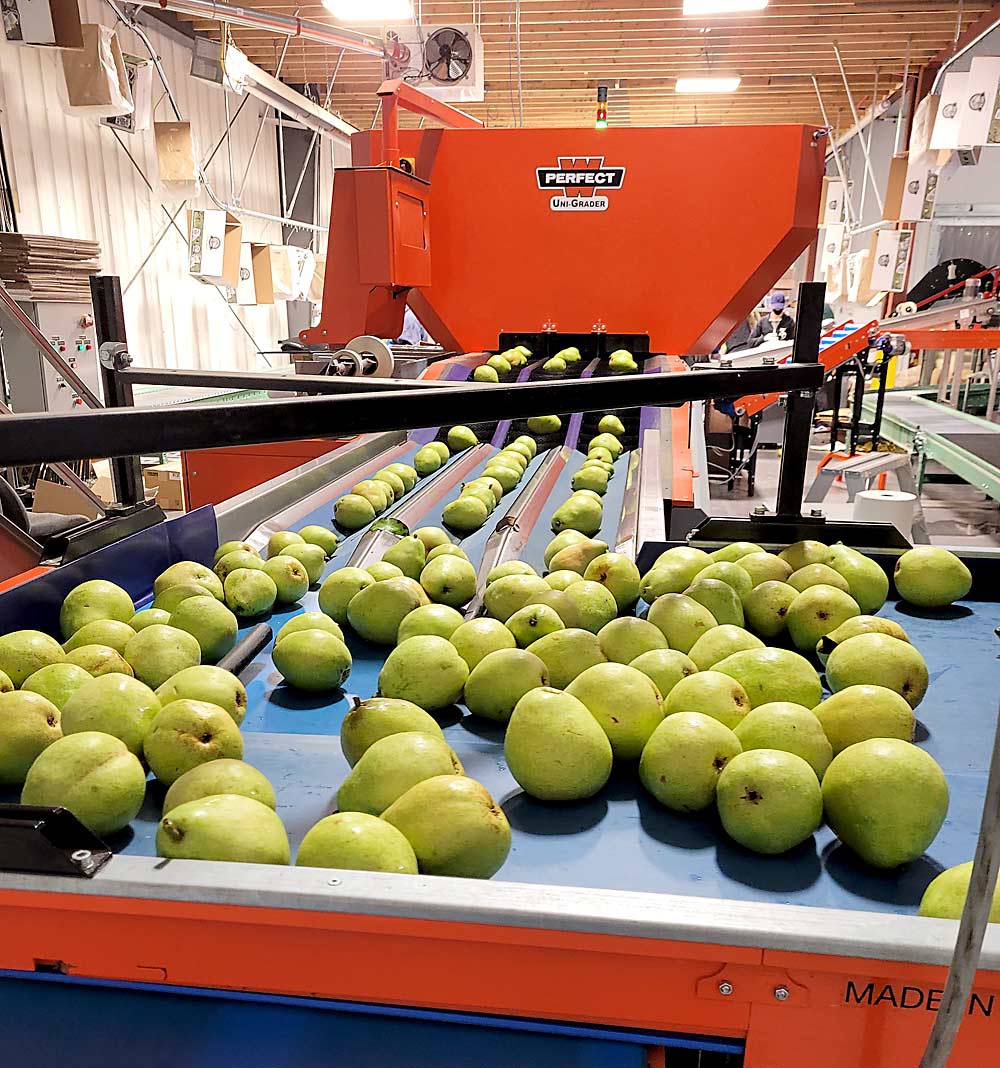
As their name implies, Day’s Century Growers in downtown Kelowna has a long history in British Columbia’s agricultural community. The Okanagan Valley property has been farmed by the Day family since the late 1800s, and three generations of the family currently operate the farm together.
When facing an uncertain future for their pear crop a decade ago, the family took a leap of faith and built their own pear packing facility. Three years ago, they doubled down with new technology, and since then they’ve found that their innovative spirit is also bringing new hope to others in the local pear industry.
“Pears have always been our main thing, but it’s been a real struggle,” said Kevin Day, who co-owns the farm with his sister, Karen Day. Their father, Ernie Day, purchased the farm from his uncle in 1954.
The first pear orchard was planted on their family farm in the 1920s. Today they grow green and red Anjou, Bartlett, Bosc and a few Harrow Crisp pears, along with a variety of vegetables and sweet corn. Over the years they’ve added a wood lot and generated logging revenues, built up the cattle herd and began direct sales of their produce at their farm market.
“It was all a means to diversify and have income to keep things rolling,” Kevin said.
But by 2011, they could see that with the returns received from the local cooperative, BC Tree Fruits, their pear business was still not viable. “It was unsustainable to us, so it was either sell a little bit of our heritage land or change our direction,” Kevin said.
In 2012, after running all the numbers, they decided to build a packing house and storage space on their farm. “We were spending a lot of money on the building and the cooling, so we kind of low-balled on our packing machine,” Kevin said. The original two-lane equipment helped them meet their goal to improve control over their quality and costs, but it was “very low-tech” and had too many height transitions — which meant more scuffing and rougher handling of the fruit, especially later in the season, he said.
So, in 2019 they installed a three-lane Van Wamel Perfect Uni-Grader with a Burg unloader and an Ellips optical sorting system — all manufactured in the Netherlands specifically for pears.
“I don’t think there’s a machine in the world that handles pears any more gently,” Kevin said.
When they built their packing facility, they also contracted with Consolidated Fruit Packers, owned by Star Produce, to market their pears. The new partnership offered the opportunity to begin conditioning their Anjous in Star’s Galaxy warehouse in Calgary, Alberta.
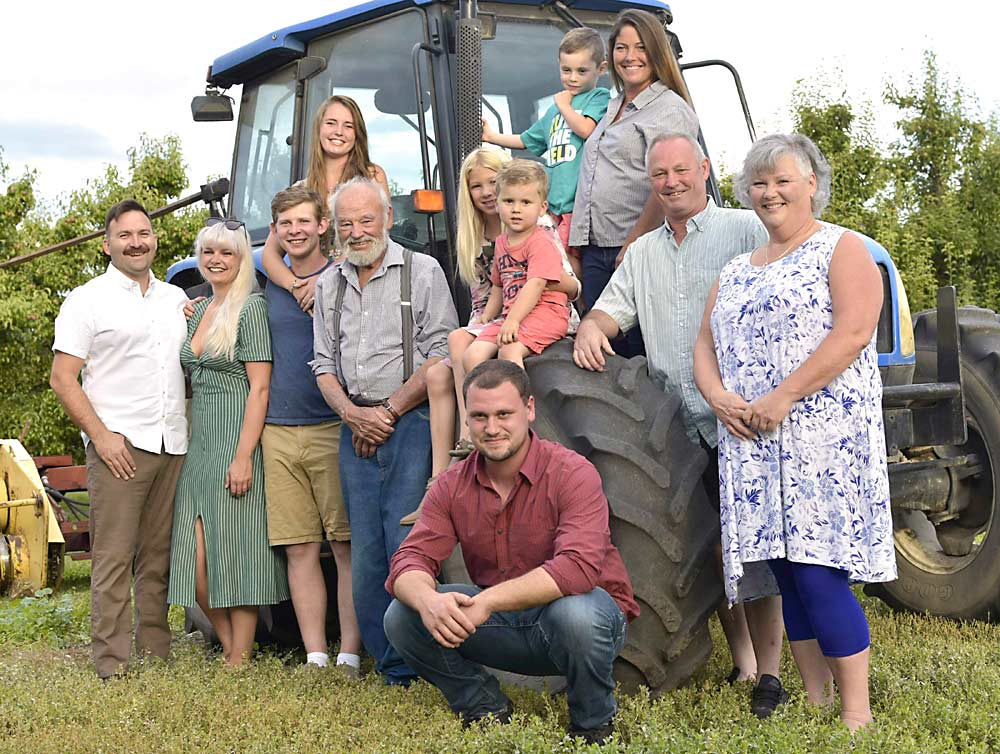
More pears, more profits
Canada produces roughly 15 percent of the pears it consumes, and most of that volume is grown in the Benvoulin area — within a few miles of Day’s Century Growers. The Days’ farm is the second largest pear producer in British Columbia, and with their packing line expansion and upgrade, Kevin said his goal was to pack even more.
Allen Reid has been bringing his pears to the Days’ packing line for the past nine years. Reid owns Hazeldell Orchards, the third largest pear grower in the area. The farm originally had some hazelnut trees on it, thus the name, and in the past has supported a diverse operation, but the land is now completely planted in fruit trees.
“In my opinion, it’s some of the best pear-growing soil in B.C.,” Reid said.
After many years of low returns on his pears, Reid said he had thoughts of selling the family farm, purchased by his grandparents in 1903. But with his pear profits increasing every year since 2013, he has hope.
“I now see a good future for the pears grown in the Benvoulin area,” he said. “Maybe one of our four kids or seven grandkids might be farming our orchard for years to come.”
Offering the best pear-packing system available in the area, Day’s Century Growers has the capacity to run up to 10,000 bins in a season. “I wouldn’t want to do any more than that, and there isn’t that much in B.C.,” Kevin said.
The local cooperative focuses on apples and recently opted to separate its growers’ apple and pear contracts, giving them the option to pack their pears with the Days’ new technology, Kevin said.
“We will be packing probably close to 2,000 bins of Bartletts (this fall) and probably 6,000 of Anjou,” he said. “That will pretty well be all of them.” And with that, Kevin said he needs to add another line and more storage.
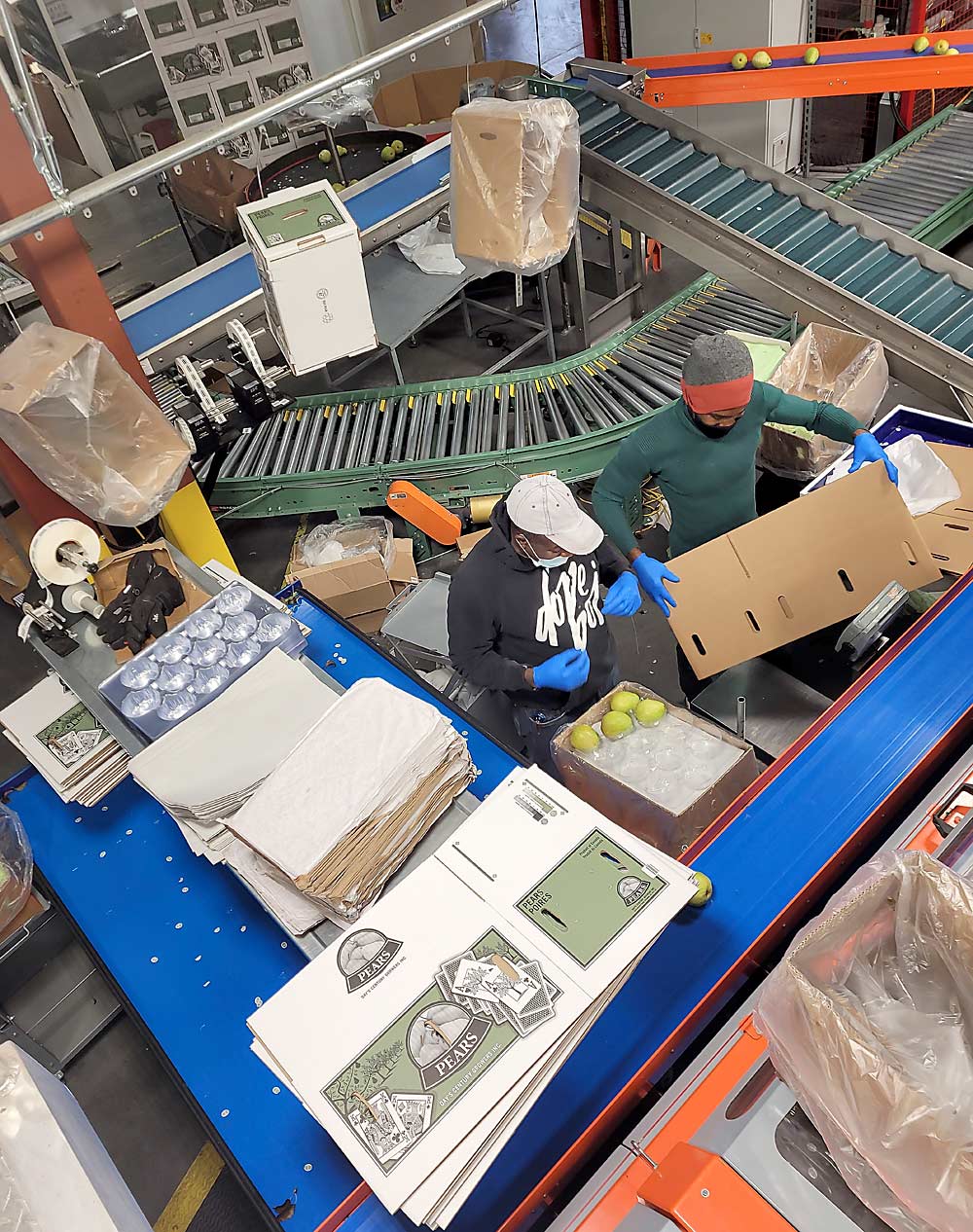
Another Day
About a mile down the road from Day’s Century Growers is the province’s largest pear grower: Kalsam Orchards, co-owned by Kevin’s cousin, Steve Day.
“I think it’s a good fit to consolidate some of our pear operations in the valley,” Steve said. “We’re neighbors — and we are related. Sometimes we admit it, sometimes we don’t.”
Steve’s brother, Mike Day, co-owns and operates the farm with him. His son, Gavin, recently started working full time in the orchard after earning a degree in business management. Steve’s wife, Dawna, and his mom, Ann, are also involved with the farm.
They have about 60 acres of pears — primarily Anjou and Bartlett. They also have about 60 acres of apples, but Steve likes the stability with pear varieties. “You’re not constantly replanting and chasing varieties like you do in the apple arena,” he said.
2021 was the first year he brought his Anjous to Kevin to pack and sell. This year he’ll also bring his Bartletts.
While Kevin proceeds with a line expansion, Steve will build a small controlled-atmosphere storage building on his farm, he said. His decision to leave the co-op was made with sustainability in mind.
“It was a big deal to have someone that was really focused on the future for our Anjou crop,” Steve said. “Bartletts are a great seller, and people like buying Bartletts. If we can get that interest generated around the preconditioned Anjou, Anjous can be very profitable as well.”
Stable and increasing
As in other pear-growing regions, pear acreage in British Columbia has generally declined in recent years, but for the growers bringing their fruit to his new line — that acreage is “stable and increasing,” Kevin said.
With the additional packing volume coming from other growers, he isn’t planning to expand his own acreage.
“We have young blocks coming along, but we made the call for our farm that we’re going to maintain our volume as it is,” he said, though they are looking at some different varieties and have a shared hope for a dwarfing rootstock that will survive their winters.
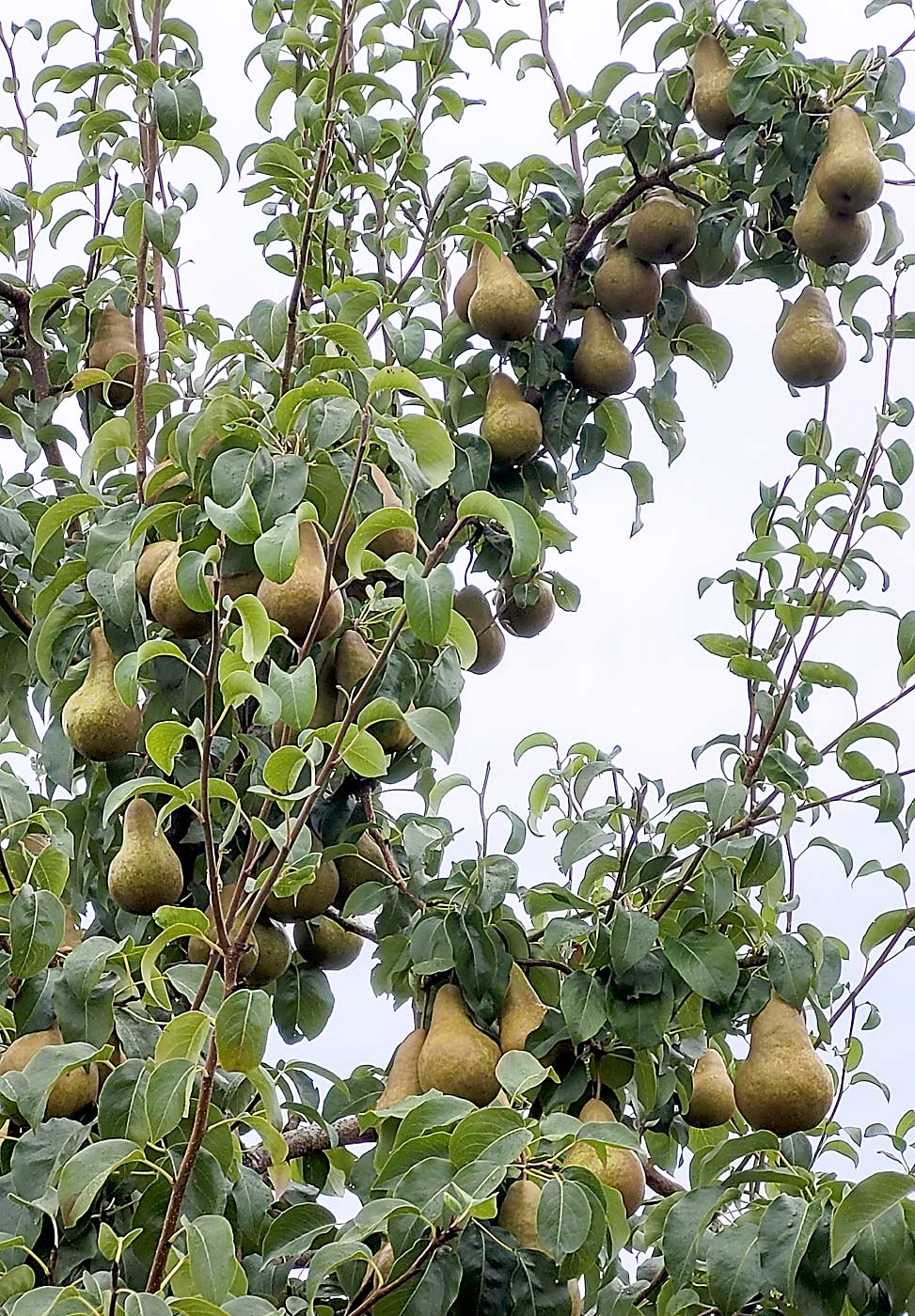
Overall, Kevin is happy with the pears he can produce in the region.
“On my Bartletts, in one block I got 72 bins an acre on 16 by 7 1/2,” Kevin said. “For Bartletts, for our area, that’s unheard of.” In some of his newer Anjou blocks, he’s had over 90 bins an acre, “but I always will have around 70,” he said.
And he’s very happy with their decision to invest in the packing facility — and the future he sees for the local pear industry. He’s not the only one.
“It’s exciting with a bit of change going on, and change kind of invigorates you,” Steve said. “Kevin and Karen’s thought for going out on their own in 2012 was because they had the nicest pears in the valley, and they wanted to make sure they were getting the benefit from that.”
That leap of faith turned out to be a benefit for other local pear growers, too.
—by Jonelle Mejica

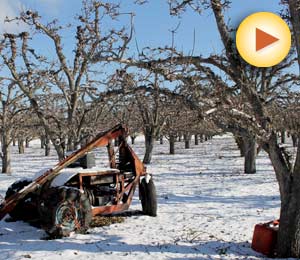





Leave A Comment